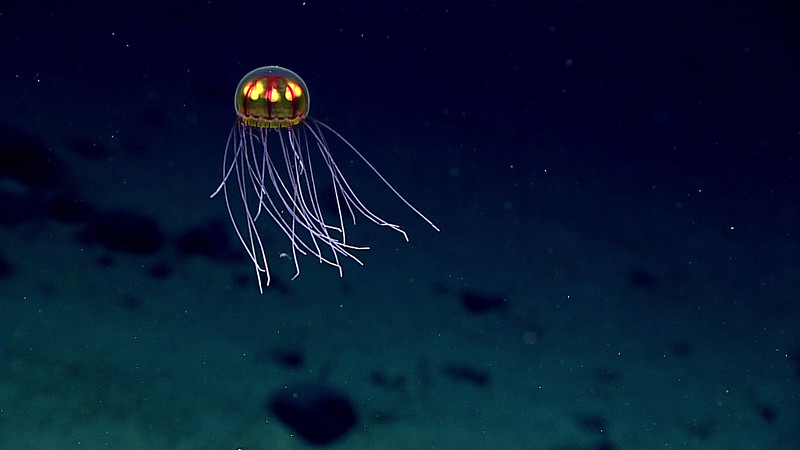Despite the setback campaigners hope countries will be emboldened to protect marine ecosystems as they negotiate seabed mining rules
Deep-sea mining will be exempted from environmental impact assessment (EIA) measures established under a landmark international oceans treaty, a move campaigners fear could undermine protection for the seabed.
The High Seas Treaty is the first international agreement to protect oceans that lie outside of national boundaries. It creates a legal mechanism for the future designation of marine protected areas and sets outs new funding provisions for marine conservation.
The deal, struck on 4 March after almost two decades of negotiations, was hailed as an “historic day for conservation” and one of the most significant ocean governance developments in the past 40 years.
However, it does not apply directly to activities already regulated by existing bodies.
Andreas Hansen, senior policy advisor at US non-profit The Nature Conservancy, told Climate Home News it was “less than ideal” that deep-sea mining in international waters, which is governed by the International Seabed Authority (ISA), is exempt from the treaty’s environmental assessment framework.
Campaigners fear this could undermine attempts to protect the seabed from human activities, for which current EIA rules are not very extensive.
‘We are not ready’: Divisions deepen over rush to finalise deep sea mining rules
ISA, a UN-affiliated body set up in 1994 under the UN Convention on the Law of the Sea (UNCLOS), is currently negotiating the approval of a mining code, laying out the rules under which companies will be allowed to extract minerals from the seabed. Campaigners say draft EIA provisions in this code are also weaker than those set out in the High Seas Treaty.
Several operators have already been exploring an area of the Pacific Ocean floor known as the Clarion Clipperton Zone. This contains a concentration of polymetallic nodules, rich in nickel, cobalt, copper and manganese, which are critical for manufacturing electric vehicles.
The ISA accelerated the pace of its mining code negotiations after the island state of Nauru triggered an obscure provision forcing approval by July 2023. The risk is that, if the agency misses the deadline, companies could submit a request to begin full-scale mining, even without any rules in place.
The full environmental impacts of deep-sea activities are still being researched. But scientists have warned about the risks of mining generating sediment plumes of debris that could travel for miles and pollute the ocean.
Several countries, including Chile, Costa Rica, Germany, Spain and New Zealand, have called for a moratorium or a ‘precautionary pause’ on the practice until further research has been done.

A Parapagurus crab makes its way across a densely packed field of ferromanganese nodules in the Gosnold Seamount. Photo: NOAA Ocean Exploration
The ISA appears to have been concerned about the impact the new High Seas Treaty could have on its authority over seabed mining, according to Duncan Currie, a lawyer and advisor to the Deep Sea Conservation Coalition.
Climate Home News has seen a copy of an information note by the ISA, circulated among some delegates at the final round of treaty talks in New York, which detailed the relevance of the body’s role in the context of the new agreement.
The document sets out how the ISA purportedly fulfills its mandate of protecting biodiversity and warned against undermining existing provisions “in the haste to seek to manage particular components of the marine environment”.
The ISA also said in the note it had developed a “comprehensive” EIA regime for activities taking place in its jurisdiction. The authority’s EIAs have been previously criticised by campaigners for prioritising the development of deep-sea mining over environmental protection.
Climate Home News asked the ISA for comment on the note but had not received a response at the time of publication.
But in a public statement, the authority welcomed the conclusion of the new agreement and said it “stands ready to work with all relevant stakeholde
Read More

